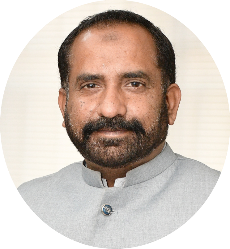
By Dr. Nadeem Ahmad Malik
Science fiction no longer describes artificial intelligence (AI). Today, the ethical use of AI is reshaping daily life all around the world, from chatbots for government services and credit scoring to telemedicine and crop monitoring. For low- and middle-income countries — often called “third world” countries — AI presents extraordinary promise: it can help stretch scarce public resources, accelerate development, and expand access to services. However, there are real ethical hazards associated with that claim.
AI has the potential to worsen inequality, strengthen discrimination, invade people’s privacy, and consolidate power in ways that are detrimental to the populations it is meant to support, if it is not used strategically. Therefore, before using AI for development planning, the decision-makers, technology specialists, members of civil society, and international players must work on its usage, its impact and must take it as a top priority to ensure the ethical use of AI at every stage.
In my opinion, fairness is at the center of ethical disagreements surrounding the ethical use of AI, especially when models are trained on data from wealthy countries. Countless AI models have been developed, gathering text, image, and behavior patterns that ignore areas with limited resources. It is frequently difficult for facial recognition software that was mostly trained on lighter-skinned faces to correctly recognize individuals with darker skin tones.
Similarly, most speakers of regional or indigenous languages will probably be misclassified by a natural language processing model that was trained solely on English. In important areas like social welfare and the health sector, these mistakes cannot be neglected, as they could lead to unbearable social problems or create disputes among the people, and could be the cause for loss of valuable lives. The ethical use of AI requires that such errors be minimized through inclusive and diverse data training.
It is important to check how these algorithms affect different thinking groups and make sure the data used shows the diversity of the local area, so the issues can be dealt with. In developing countries, the lack of strong laws and policies makes the ethical use of AI more difficult, especially when it comes to data control and privacy risks. Using medical records, banking and financial details, or biometric information in AI services can lead to data being leaked or misused, and might even allow someone to take advantage of personal information for money.
When people share their data without a full understanding, the lack of good data protection allows companies to use this data in ways that are unfair and harmful to the economy. In such situations, using ethical AI is supported by local laws and the ability to access legal resources, which help protect people’s rights by setting clear and enforceable rules about consent, the usage of data, keeping only required data, and holding organizations accountable. The ethical use of AI ensures that data remains a tool for empowerment, not exploitation.
Some specific group of people takes advantage of this information, causing economic instability. In underdeveloped countries, the ethical use of AI must be guided by labor protections to prevent unemployment in industries where human resources are essential, such as engineering and manufacturing, transportation, and emergency centers, which results in more economic crises. If used correctly with strong policies and laws, the AI technology has the potential to save costs and boost productivity.
Without regulatory bodies and labor laws, automation could increase unemployment and worsen social problems. These countries are heavily relying on funds to implement AI technologies. In such countries, the ethical use of AI can provide good jobs, produce skilled labor, and create innovative services. The real ethical challenge is how to utilize it to increase opportunities.
The misuse of AI for political purposes highlights the urgent need for the ethical use of AI, with transparency and safeguards to protect democratic values. The government has to play a crucial role in keeping the information secure and implementing transparency so that people can share the information confidently. The use of tools like biometric and facial recognition, tracking phone calls, or predicting criminal behavior must be justified. But if there is no transparency or checks in place, these technologies can be used to benefit certain groups only.
To use AI fairly, the government makes sure that all AI systems and services are openly known, and sets up strict rules against any technology that threatens democracy or human rights. There must be strong policies and laws ensuring the ethical use of AI across all public institutions.
The setup of AI-based data centers and infrastructure is another challenge in underdeveloped countries. Ensuring the ethical use of AI also means investing in infrastructure that supports secure, inclusive, and locally managed systems. These systems require super-fast internet, unfailing and consistent electricity, all of which are not easily available in these countries. It requires a huge effort to design the infrastructure with offline capabilities, standard models, energy efficiency, and the right hardware.
Furthermore, it requires long-term investment and management in digital infrastructure, i.e., data maintenance and upgrade costs.
How can ethical AI be implemented in developing countries, then? It must be designed inclusively first. Instead of being consulted only after decisions are made, end users, civil society organizations, and local communities must be actively involved from the beginning. Co-design guarantees that systems avoid harmful assumptions, serve real demands, and respect cultural norms. Second, it is essential to establish capacity. Governments and regulators must be ready to carry out audits, implement standards, and understand the dangers of artificial intelligence, ensuring that the ethical use of AI is not compromised.
To enable local talent to drive AI research instead of just deploying solutions developed elsewhere, training programs and institutions should concurrently expand their data science, ethics, and policy offerings.
Third, stronger mechanisms for data management and the law are required. This means establishing independent data protection authorities, passing or updating data protection laws that are suitable for the institutional capacity of the country, and encouraging best practices for secure storage. Accountability and openness come in fourth. When putting high-impact AI into practice, both public and private entities should make it clear how anyone can challenge or appeal decisions, explain their systems in plain language, and, when practical, provide an explanation of their reasoning. The employment of independent audits, algorithmic effect evaluations, and public feedback mechanisms ought to be a standard procedure to promote the ethical use of AI.
The international collaboration can play a vital role in making AI technology available to third-world countries. The government should make partnerships with multinational companies and businesses in this regard. The services of these companies should be hired, and a contract should be made so that access to private and confidential information is kept safe. This handling of technology must be led by a local and native expert to develop customized software and user-friendly architecture. Training of local staff should be conducted so that these countries can rely on these services confidently and be able to mark their inputs as well. This results in more local jobs and builds trust in AI technologies through the ethical use of AI.
Finally, humbleness is the key to the ethical use of AI. With strong laws and inclusive design, it can enhance governance, reduce corruption, and improve public services. AI is not to replace politics; rather, it helps politicians and governments in making better decisions for society. Therefore, governments should take AI as a tool in development strategies that focus on humanity and sustainability. It is challenging, but it can be achieved. Using AI, third-world countries may be able to progress by leaps and bounds.
It increases jobs, improves the economy, and brings prosperity. AI has the ability to provide efficiency in healthcare, education, and financial institutions when used properly. The decision we make today will improve societies and economies for years to come. To ensure that AI serves everyone, not just the elite, the governments, communities, and developers must collaborate with a clear, open, and moral goal — rooted in the ethical use of AI.
Read more expert opinions here: https://thepublicpurview.com/category/blog/
For climate-related stories, visit: The Green Post






 Today's E-Paper
Today's E-Paper